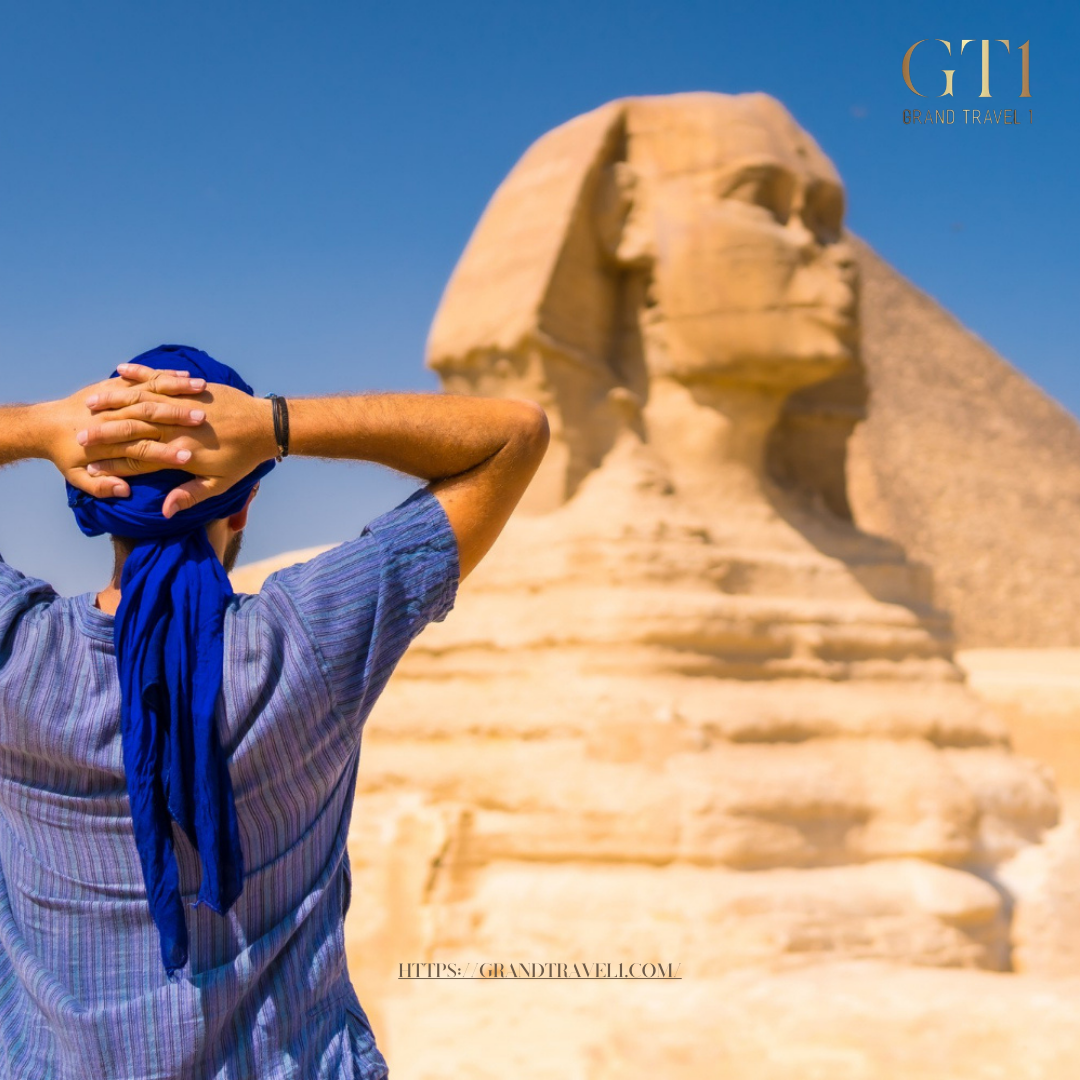Planning a trip to Egypt? You're likely brimming with questions! Which must-visit attractions should be on your list? What essentials should you pack for the journey? And the most frequently asked question of all—is egypt safe to visit?
Egypt's rich history echoes through its modern-day culture. From majestic ancient landmarks to bustling streets filled with aromatic foods, and a vibrant, eclectic nightlife, there's something to engage all of your senses.
In this article, you’ll find answers to all the questions you have regarding your upcoming trip to Egypt, covering everything you need to know for a memorable visit.
Visa on Arrival
Most travelers to Egypt will require a visa, but the process is straightforward for many nationalities.
If you are a citizen of the USA, European Union, Australia, New Zealand, Japan, Norway, Russia, or several other eligible countries, you can easily obtain a Visa on Arrival at the airport.
However, it’s important to note that Canadian citizens are now required to apply for a visa through the Egyptian consulate prior to arrival, as per a recent update.
For those arriving at Cairo International Airport, the process is simple. Before reaching passport control, look for the bank window where you can purchase your visa. The cost is $25 USD, payable in cash. Once you’ve obtained the visa, proceed to passport control with your passport. The officer will attach the visa to your passport and provide a stamp.
Grand travel 1 can provide you with support and assistance for booking. Just contact us!
SIM Cards for Your Trip to Egypt
Staying connected during your trip to Egypt is easy with several convenient options for SIM cards. Whether you prefer a physical SIM or the convenience of an e-SIM, there’s a solution to suit your needs.
Physical SIM Cards
For travelers arriving at Cairo International Airport, the Orange kiosk near baggage claim offers a quick and affordable way to purchase a SIM card. The process is straightforward: present your passport, ensure your phone is unlocked, and you’ll be ready to enjoy reliable cellular service throughout Egypt. Orange provides excellent coverage, even in more remote areas, making it a popular choice for visitors.
e-SIM Cards with Airalo
For a hassle-free alternative, consider using Airalo, a trusted provider of e-SIM cards in multiple countries, including Europe. With Airalo, you can purchase and activate your e-SIM before arriving in Egypt, saving time and avoiding the need to locate a physical SIM kiosk. While we haven’t personally tested Airalo in Egypt, our experiences in Europe have been exceptional, with strong coverage even in less populated regions.
Tips for a Smooth Experience
- Ensure your phone is unlocked before traveling to Egypt to avoid compatibility issues.
- Compare the cost and data plans of physical SIMs versus e-SIMs to find the best option for your needs.
- If you choose a physical SIM, purchase it upon arrival to avoid potential delays in connectivity.
By choosing the right SIM option, you can enjoy seamless connectivity throughout your Egyptian adventure, whether you’re navigating historic sites, sharing travel moments, or staying in touch with loved ones.
Create a Rough Itinerary
Egypt offers a wealth of experiences beyond the iconic pyramids, so it’s essential to plan your trip wisely to make the most of your visit. Organizing your days by region will help streamline your travel, especially in bustling cities where traffic can be unpredictable and overwhelming.
You can discover the best places to visit in Egypt Here, where history, culture, and natural beauty come together to create unforgettable experiences.
If you're a beach enthusiast, the North Coast and Naama Bay provide fantastic opportunities for diving and snorkeling. For those who prefer off-the-beaten-path destinations, Egypt’s hidden treasures, such as the serene Siwa Oasis, are well worth exploring.
With diverse attractions catering to every type of traveler, the key to an unforgettable trip is to tailor your itinerary to your personal interests and make sure you plan each day efficiently for a smooth and enjoyable experience.
Best time to visit Egypt
The ideal time to visit Egypt is during the cooler months, from November to March. During this period, the southern regions like Luxor and Aswan experience minimal rainfall. In Cairo, while haze may be an issue in the mornings, visiting outdoor attractions such as the Pyramids of Giza is best scheduled for the afternoon to avoid it. Keep in mind that winter rains are possible in Cairo and Alexandria.
The peak tourist season is in December and January, so expect larger crowds.
In contrast, summer months bring intense heat, with temperatures ranging from 40°C to 55°C (104°F to 130°F). In Luxor and Aswan, this is a dry heat, but in Cairo and Alexandria, the added humidity can make the temperatures feel even more oppressive.
Respecting local etiquette is essential when visiting religious and historic sites in Egypt. Here are some tips to keep in mind:
- Mosques: Always remove your shoes before entering. Women should cover their heads when visiting mosques.
- Historic Sites: Avoid touching any antiquities, and remember to use cameras without flash to protect the delicate artifacts.
- Beaches: Feel free to wear your swimsuit and relax, but be aware of local customs. If you're unsure, observe the locals and follow their lead.
- Photography Tips: While taking photos at tourist attractions is generally allowed, always ask for permission before photographing people. Be respectful of restrictions and never take photos where it is explicitly prohibited.
By following these guidelines, you will ensure a respectful and enjoyable visit to Egypt.
Learn Basic Arabic Phrases
While Google Translate can assist with quick translations, engaging with locals in Arabic for simple greetings and courtesies will enhance your experience and help you connect more authentically.
Egyptians are generally friendly and happy to assist, but knowing a few basic Arabic phrases can be especially useful when dealing with unilingual locals or navigating situations involving hustlers or persistent vendors. Simple phrases such as "al salam alaykom" (hello), "shukran" (thank you), "aywa" (yes), "la’a" (no), and "ma’ al-salama" (goodbye) can go a long way in creating a more respectful and enjoyable interaction.
Avoid Tap Water and Be Cautious with Food Carts
To ensure your Egyptian adventure isn’t interrupted by an upset stomach, steer clear of drinking tap water unless it has been properly filtered. For added peace of mind, consider bringing a reliable water-filtration system or follow the local preference for bottled water.
Egyptian cuisine is undeniably one of the highlights of the country, and the allure of sampling it at every turn is hard to resist. However, some food carts may not store their ingredients properly, increasing the risk of foodborne illnesses. As a visitor, it can be difficult to judge the safety of street food, so a safer bet is to dine at local shops. These establishments often serve dishes just as delicious as those from street vendors, with the added assurance of better hygiene standards, allowing you to savor Egyptian flavors without worry.
Haggling for Souvenirs in Egypt
When visiting Egypt, one of the most exciting experiences is exploring the bustling markets, offering everything from ancient papyrus to intricately designed silverware and hand-painted ceramics. But what makes these markets truly unique is the art of haggling, which is as much a part of the culture as the items for sale.
is Egypt safe to visit?
Safety is often a top concern for travelers considering a visit to Egypt, and we were no exception.
In recent years, Egypt has seen a resurgence in tourism, with more visitors sharing positive experiences and emphasizing how safe they felt during their stay. Encouraged by these accounts, we booked our trip with cautious optimism, keeping a close watch on updates from the US State Department in the months leading up to our departure.
Once in Egypt, we were pleasantly surprised. At no point during our trip did we feel unsafe. While the visible police and military presence, including armed guards and frequent roadside checkpoints, can initially feel intimidating, these measures are in place to ensure the safety of tourists. Hotels and tourist sites also implement security checks, such as passing through metal detectors, adding an extra layer of protection.
Tourism is a cornerstone of Egypt’s economy, and the country takes significant steps to safeguard visitors. Beyond these measures, the Egyptian people themselves were incredibly warm and welcoming. Locals often approached us to inquire about our experience, genuinely eager to ensure we were enjoying our visit and encouraging us to share how safe we felt back home.
That said, Egypt’s safety can vary depending on the region. Popular tourist destinations such as Cairo, Alexandria, Hurghada, Luxor, Aswan, and Abu Simbel are considered safe and well-monitored. During our time in these areas, we felt entirely secure, thanks in part to staying within established tourist zones and traveling with a guide and driver.
However, there are regions travelers should avoid, including the Sinai Peninsula and the western Sahara Desert near the Libyan border, due to potential safety risks.
Ultimately, with proper planning and adherence to travel advisories, Egypt offers a safe and unforgettable experience, rich in culture, history, and hospitality.
At the end of this article, we hope we have answered all the questions and queries you may have regarding your trip to Egypt. For further assistance and to book your trips with the best programs and competitive prices, feel free to contact us info@grandtravel1.com



